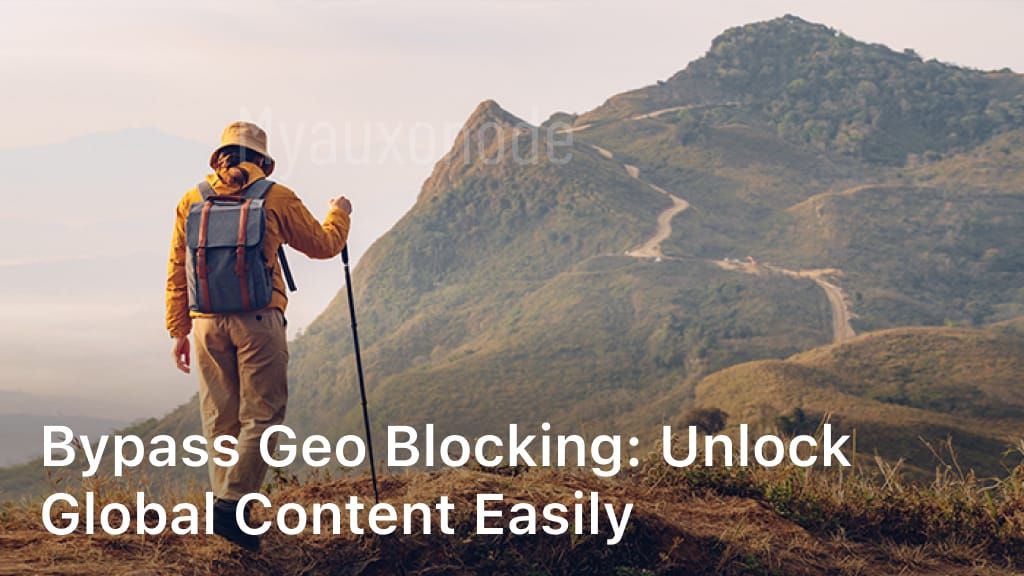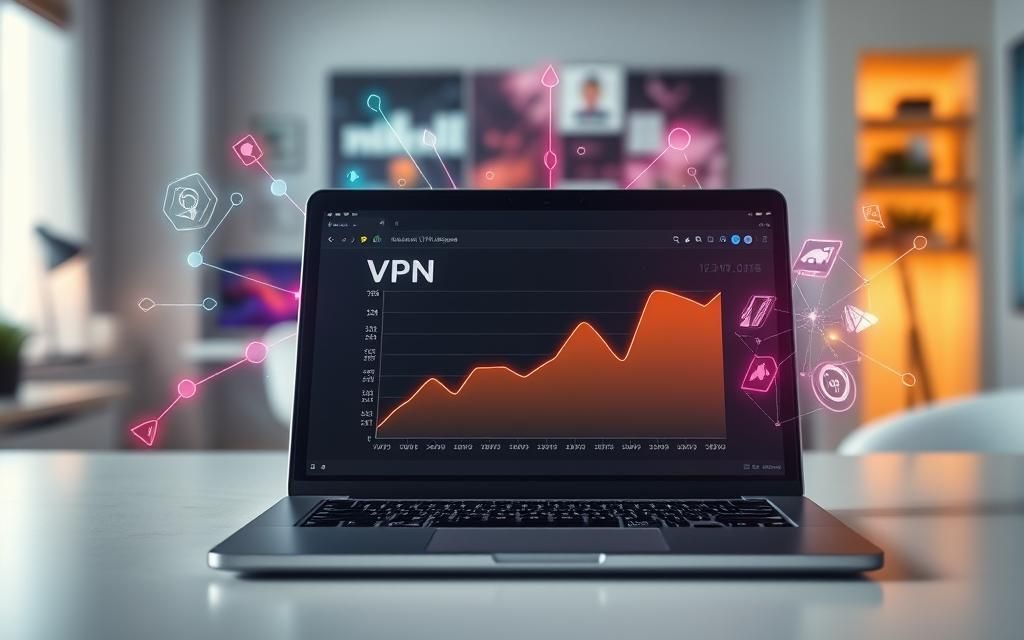Welcome to the digital age, where accessing content from anywhere in the world should be a seamless experience. However, due to geo blocking, certain websites and services are restricted based on your location, limiting your access to valuable content. But fear not! There is a solution. By bypassing geo blocking, you can say goodbye to those frustrating messages that prevent you from accessing the content you desire. Whether it’s streaming your favorite shows, catching up on international news, or accessing region-locked websites, there is a way to unlock global content easily. One highly effective method to bypass geo blocking is by using a Virtual Private Network (VPN). A VPN creates a secure connection between your device and the internet, while also masking your IP address. This allows you to browse the web as if you were in a different location, giving you access to blocked content anywhere in the world. With a VPN for bypassing geo blocks, you can browse, stream, and download without limitations. No more restrictions, no more missing out on valuable content. It’s time to take control of your online experience and enjoy unrestricted access to the world of digital content. So, if you’re tired of hitting roadblocks and want to access blocked content effortlessly, join us as we explore the world of bypassing geo blocking with VPNs. Get ready to unlock global content easily and enrich your online experience like never before. What is Geo Blocking and Why Does it Exist? Geo blocking is a practice used by websites and online services to restrict access to their content based on the user’s geographic location. It involves identifying the user’s IP address and using it to determine their approximate location. Websites then enforce region-specific restrictions by allowing or denying access to certain content, services, or features. There are several reasons why geo blocking exists. One of the main reasons is licensing agreements. Content providers, such as streaming platforms or online stores, often have different licensing agreements for different regions. These agreements determine which content can be accessed in which countries. Another reason for geo blocking is regional marketing and pricing strategies. Companies may want to offer specific products or services only to customers in certain regions or adjust their prices based on local market conditions. Geo blocking helps them enforce these strategies by limiting access to their websites based on location. Geo blocking can be frustrating for users who want to access region-locked content or bypass these restrictions. Fortunately, there are ways to circumvent geo restrictions. By using methods like VPNs (Virtual Private Networks) or proxies, users can mask their IP addresses and appear as if they are browsing from a different location. This enables them to bypass geo blocking and gain access to the content they desire. In the next section, we will explore how geo blocking works in more detail, including the techniques used to identify a user’s location. Understanding how geo blocking operates is crucial in finding effective ways to bypass these restrictions. How Does Geo Blocking Work? Geo blocking is a technique used by websites and online services to restrict access based on a user’s geographic location. By identifying a user’s IP address, websites can determine their location and implement measures to prevent access from certain regions. There are several ways in which geo blocking works: IP Address Tracking: Websites track a user’s IP address, which is a unique identifier assigned to each device connected to the internet. By analyzing the IP address, websites can determine the user’s approximate location. Database Lookups: Websites use databases that categorize IP addresses based on their associated geographic locations. These databases contain information about IP ranges and the countries or regions to which they belong. Region-Based Restrictions: Once a user’s location is identified, websites can apply region-based restrictions. This means certain content or services may be blocked or limited to specific countries or regions, preventing users from accessing them. Geo blocking is often implemented to comply with legal requirements, protect intellectual property rights, and control distribution of content. While these measures serve legitimate purposes, they can also limit internet freedom and deny users access to information and services available in other parts of the world. Fortunately, there are ways to bypass geo blocking and overcome these restrictions. One popular method is by using a Virtual Private Network (VPN), which allows users to route their internet traffic through servers located in different countries. By doing so, users can mask their IP addresses and appear as if they are accessing the internet from a different location, bypassing geo restrictions. In the next section, we will explore how VPNs enable users to bypass geo blocking and unlock global content easily. Bypassing Geo Blocking with VPNs If you’re tired of encountering frustrating geoblocks that prevent you from accessing your favorite content, you’ll be happy to know that there’s a way around it. Virtual Private Networks (VPNs) can be your secret weapon for bypassing geo blocking and enjoying unrestricted access to global content. But how do VPNs work? Well, they act as a tunnel between your device and the internet, encrypting your internet traffic and masking your IP address. By connecting to a VPN server located in a different country, you can make it appear as if you’re accessing the web from that location. This trickery allows you to freely access blocked content, regardless of your real geographic location. In addition to VPNs, proxies can also be used to bypass geo blocking. Proxies work similarly to VPNs by hiding your IP address and redirecting your internet requests through a different server. They, too, can help you access region-locked websites and services. When choosing a VPN or proxy service, it’s important to consider factors such as server locations, speed, and privacy policies. Look for reputable providers that offer a wide range of server options to ensure better access to diverse geo-restricted content. By utilizing VPNs or proxies, you can unlock a world of global content, whether it’s accessing streaming services, downloading files, or browsing region-locked





